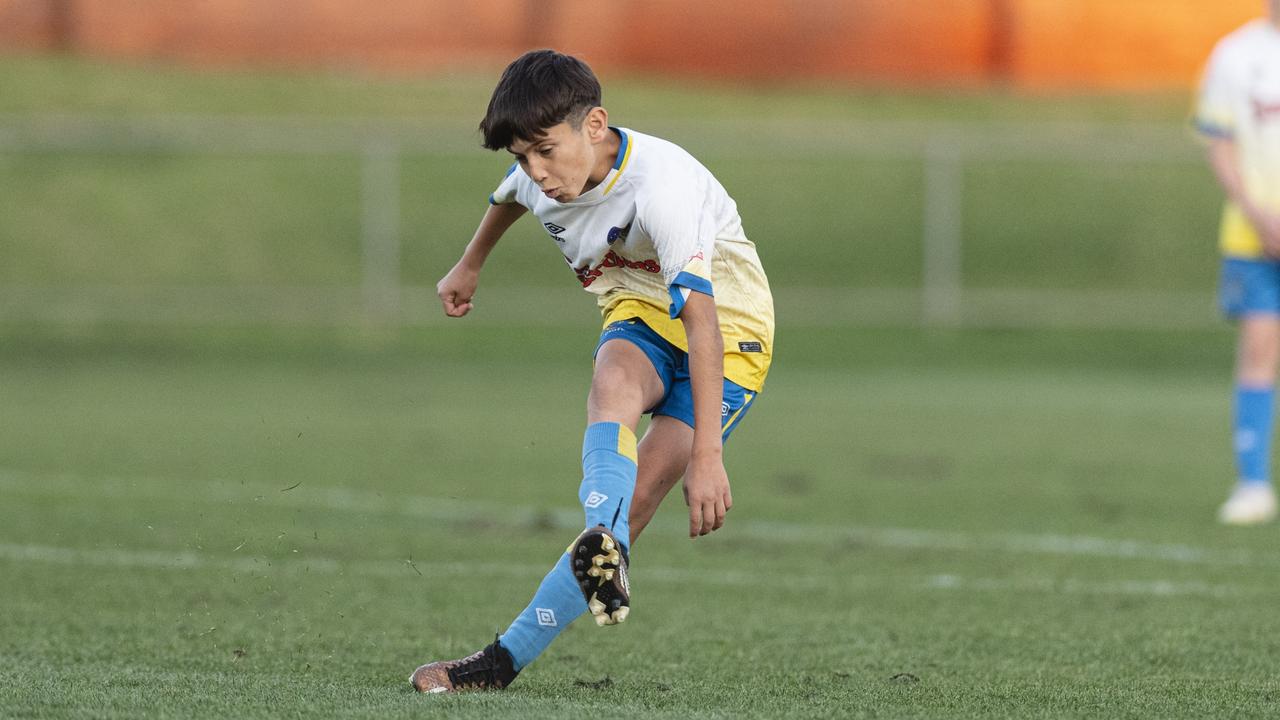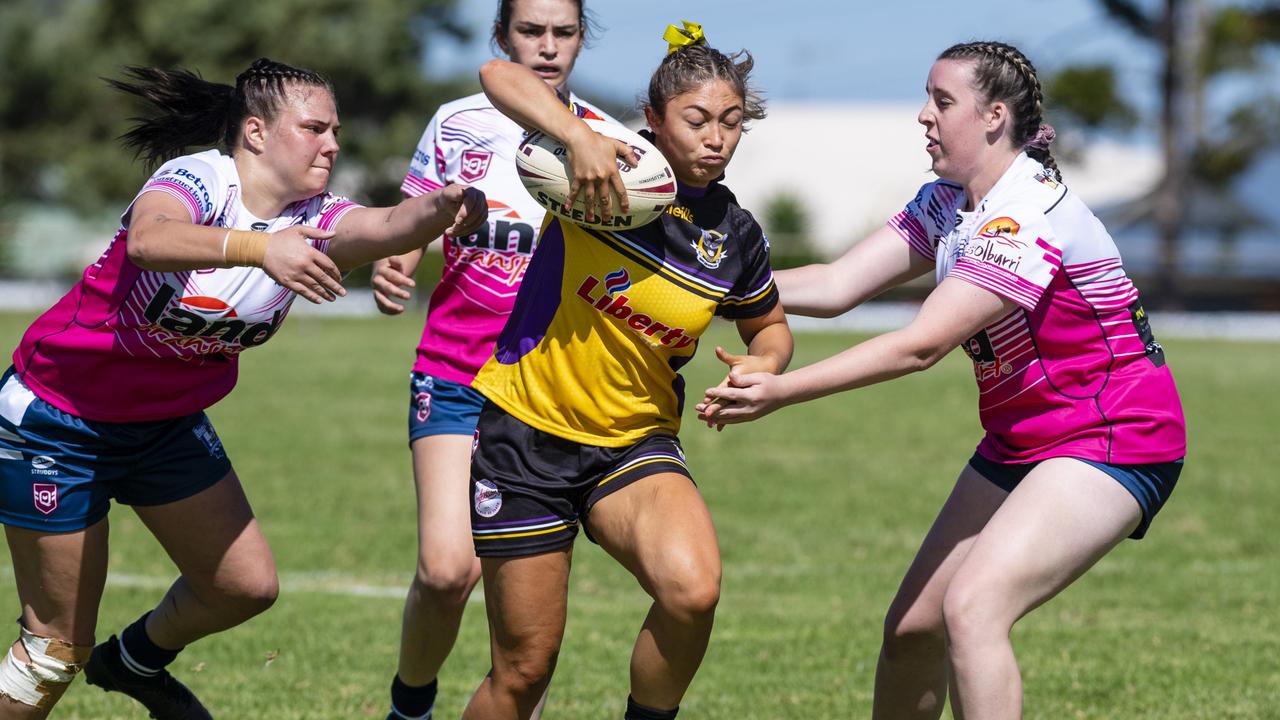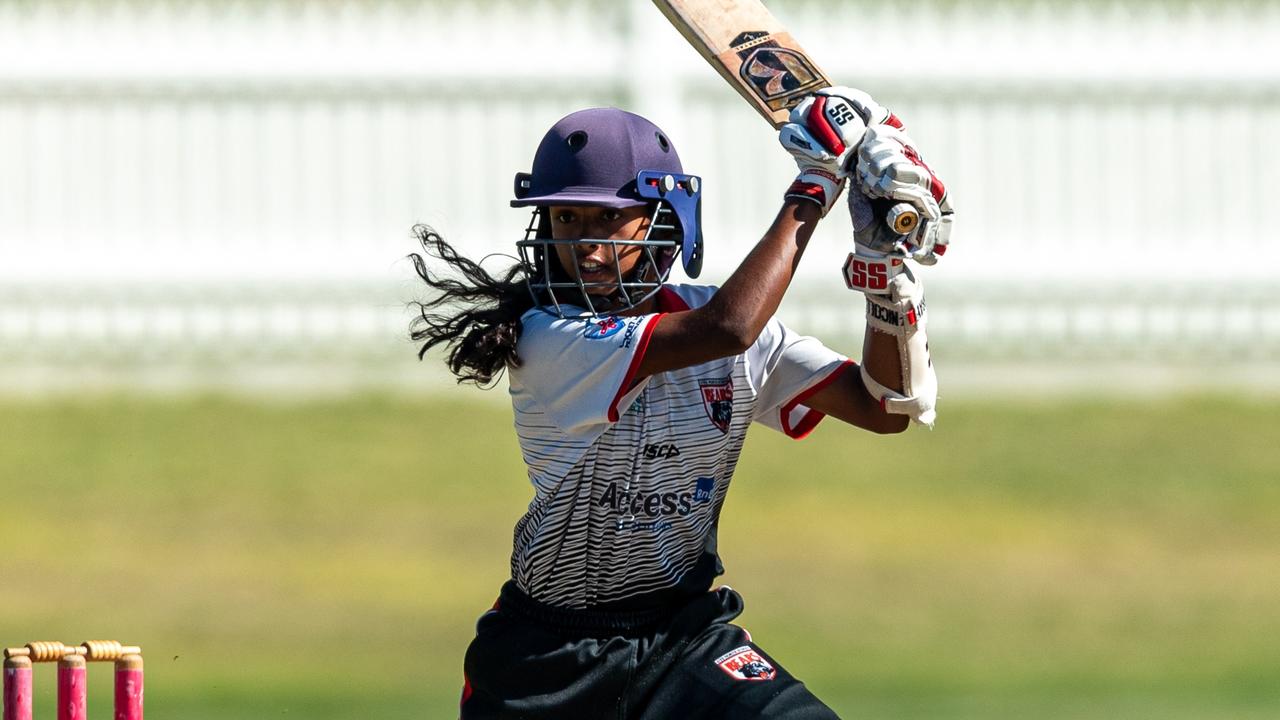Feral horses, goat sheds and 3 dumplings a day: Queenslander conquers world’s longest race
“It almost broke me”: Queensland equestrian rider shares rare insight into world’s longest endurance race and how the kindness of strangers helped her survive 1000km journey.
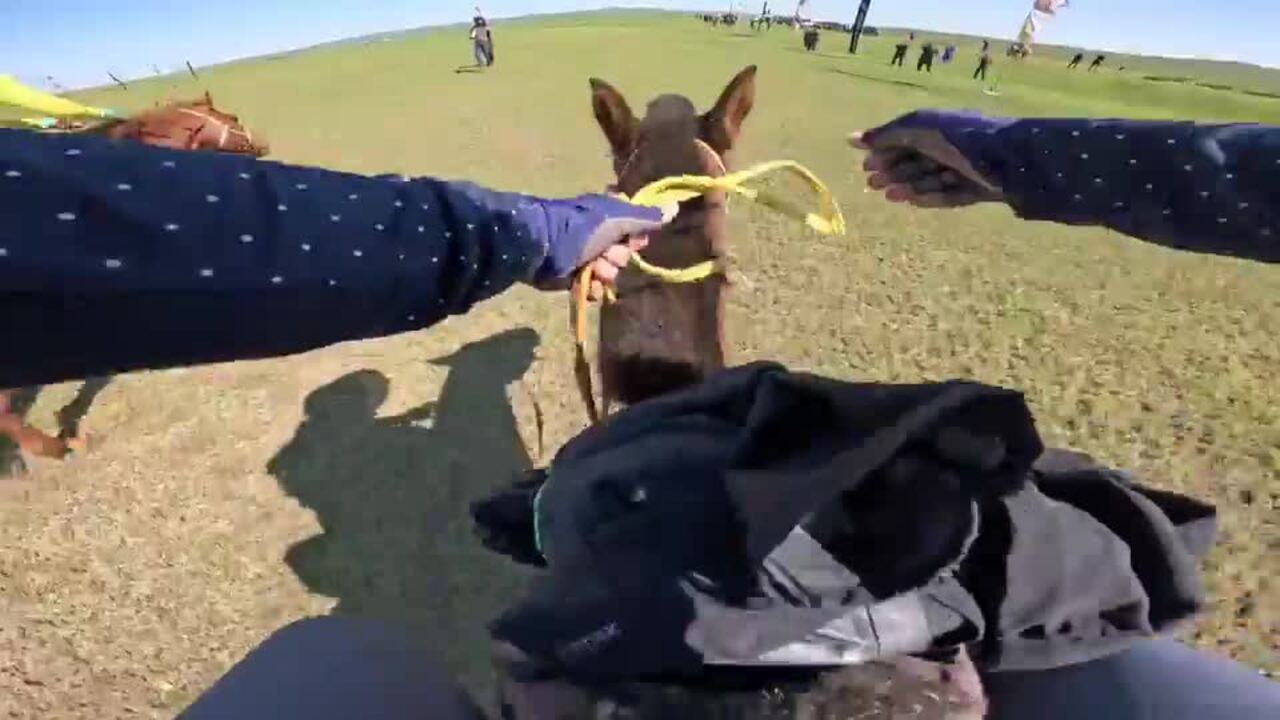
Sport
Don't miss out on the headlines from Sport. Followed categories will be added to My News.
Dumplings, electrolytes, semiwild horses, goat sheds and the kindness of strangers.
At a glance it is a random list or maybe the plot points for a post-apocalyptic movie.
For Kelly Dudley they were the keys to surviving the world’s longest and toughest equestrian endurance race – the Mongol Derby.
The 31-year-old Warwick woman joined a select group of riders when she completed the event late last year.
“I first heard about it about it probably five years ago,” Dudley said.
“There’s a bit of a process to even apply to race as they only take about 40-50 riders a year and you have to do an interview.
“Once I got accepted I had to wait two years before I could ride in it (in November) last year.
“In that time I had to prepare myself for it … I don’t think anything could prepare you to do something like that.
“Looking back it’s a bloody long way.”
Covering 1000km in just 10 days, riders must negotiate everything from beaten dirt tracks and rolling grass plains to rocky steppes, rivers and swampy bog lands while accepting two major challenges every single day.
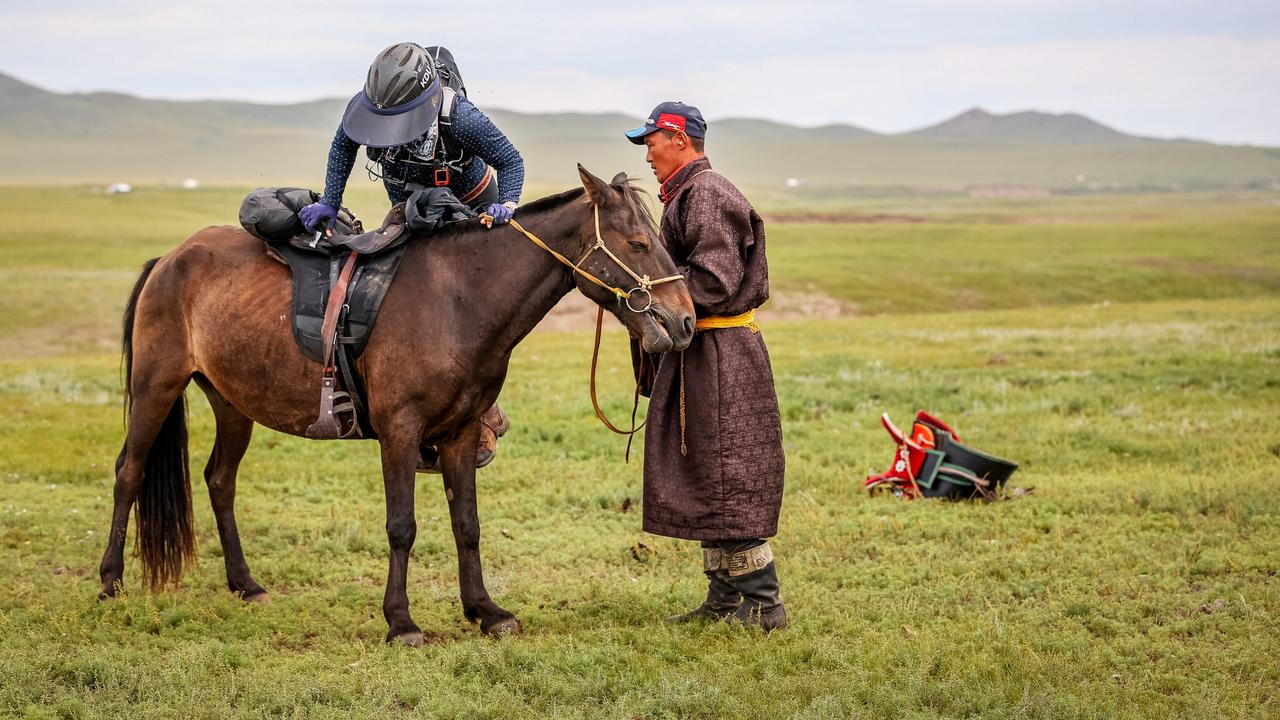
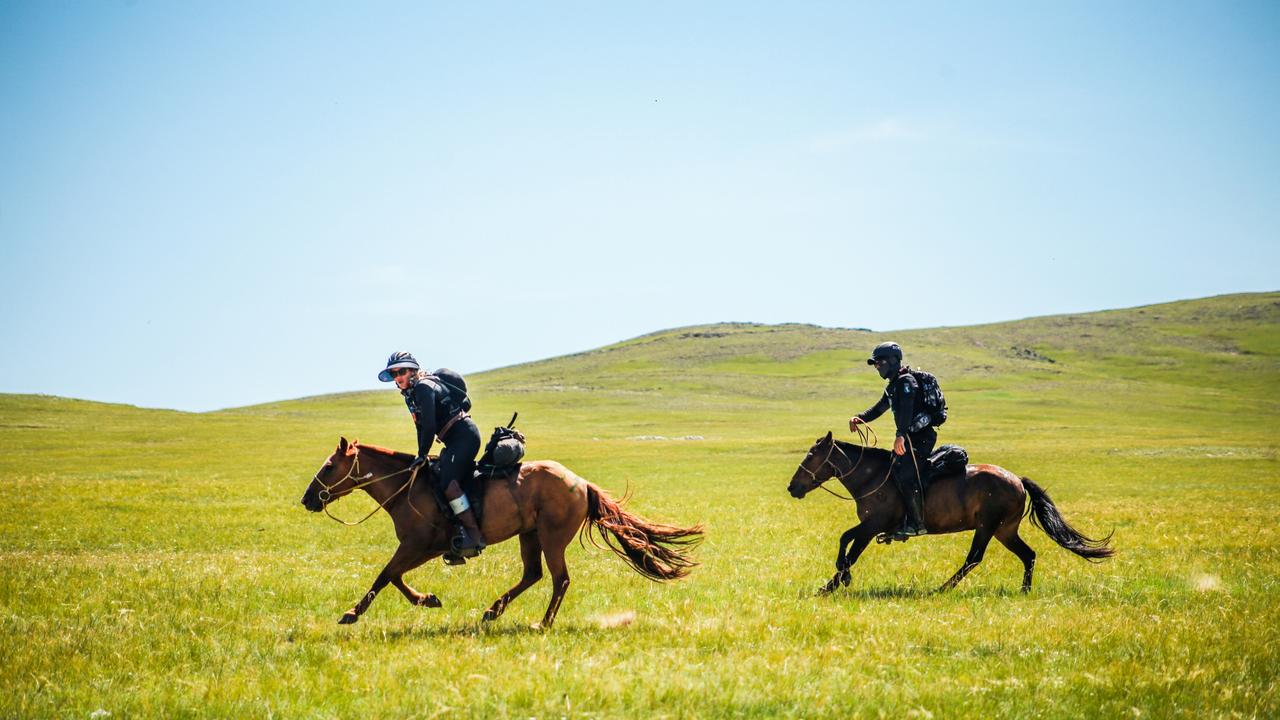
The first and arguably most significant of the challenges was ‘the horse herds’.
Race organisers work with local herders strategically placed along the course who provide horses.
“You’re on a horse after you’ve drawn a number out of a hat,” Dudley said.
“Say you’ve drawn number four, the herder will bring you number four and that’s the horse you have for the next 40km regardless of it is a good horse, a bad horse, you’ve got to get to the next checkpoint on that horse.
“You’re swapping horses every 40km so you’re going through three or four horses a day.”
Many of the horses are sparingly ridden throughout the year.
“I rode some pretty feral horses,” Dudley said.
“I worked out pretty quick I had to start riding them like the herders do, you had to let them run because that’s all they really know flat out.
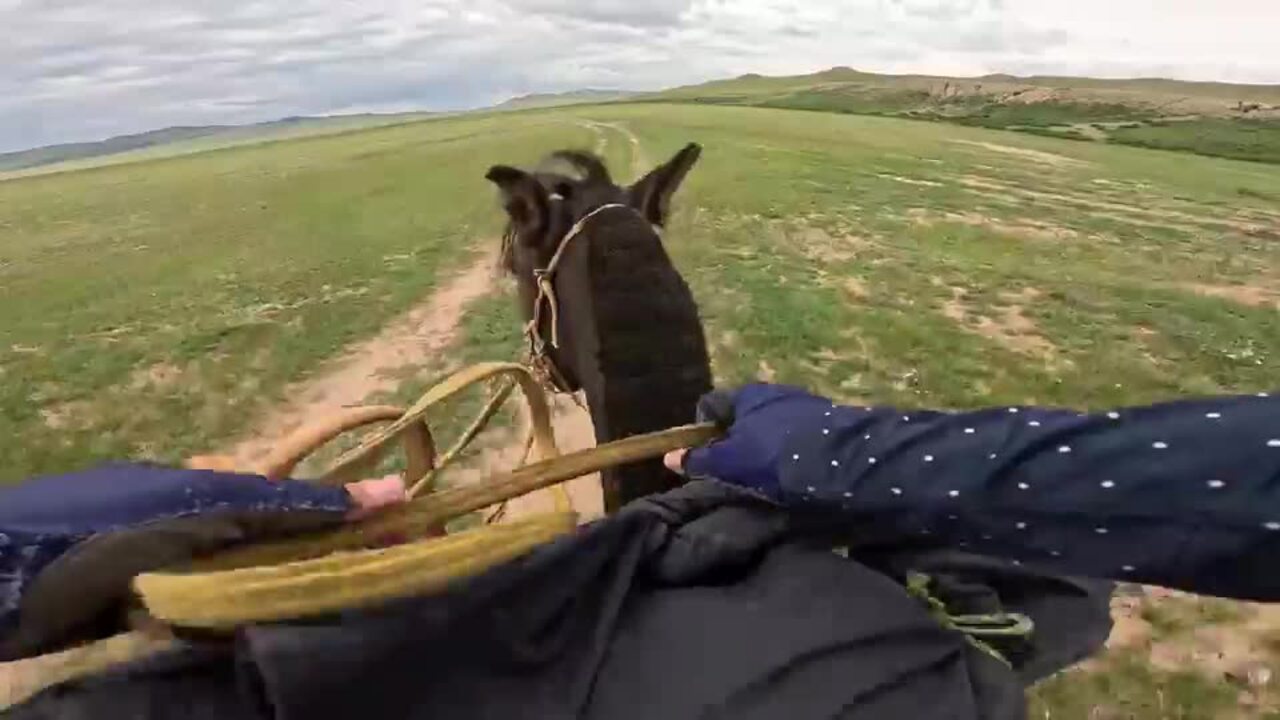
“Luckily I only rode probably two where I was really scared for my life.
“They were usually pretty good horses by the end of the 40km and it was so sad because you’d have to give them back and start again.”
Riders were also limited to 5kg pack each day.
“You were only allowed a 5kg pack. I had my rain and sleeping gear which didn’t leave much,” Dudley said.
“I had all these snacks I was going to take but I had to leave them behind because I wasn’t going to make weight with my pack.
“I had to rely on the herders who didn’t speak English to feed me for 10 days.
“It was crazy because I was living on probably three dumplings a day and electrolytes to see me through.”
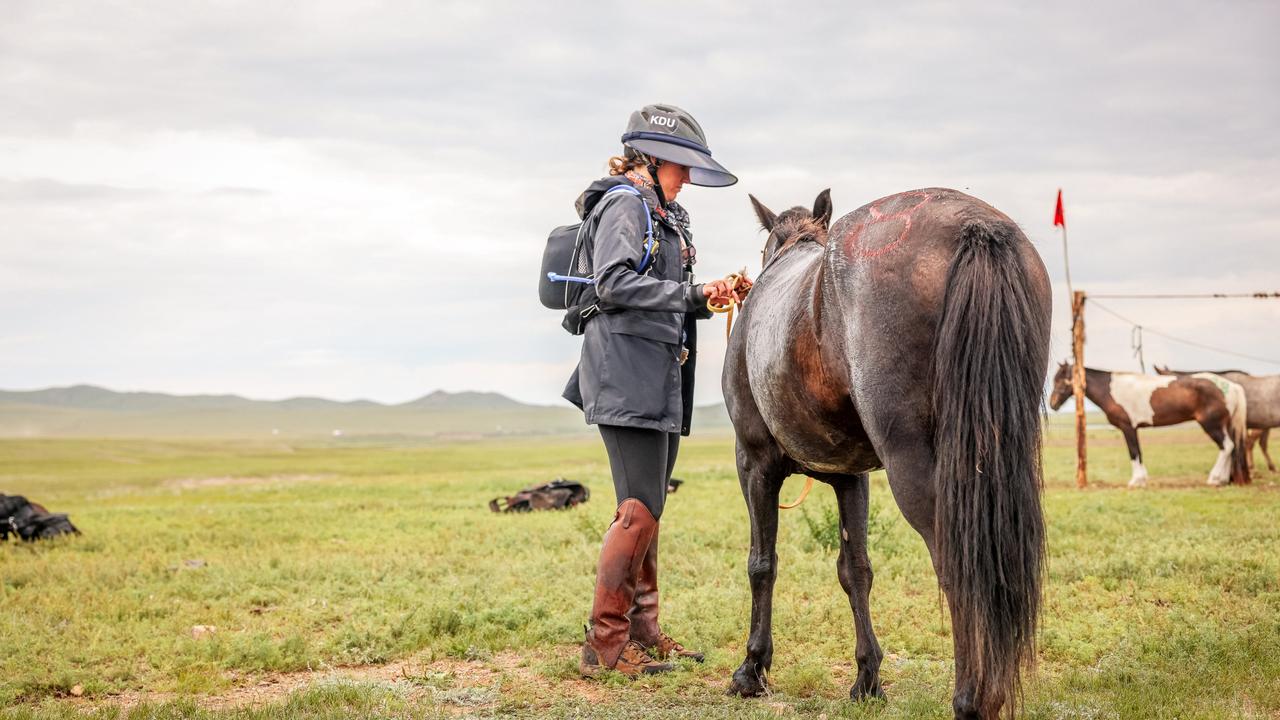
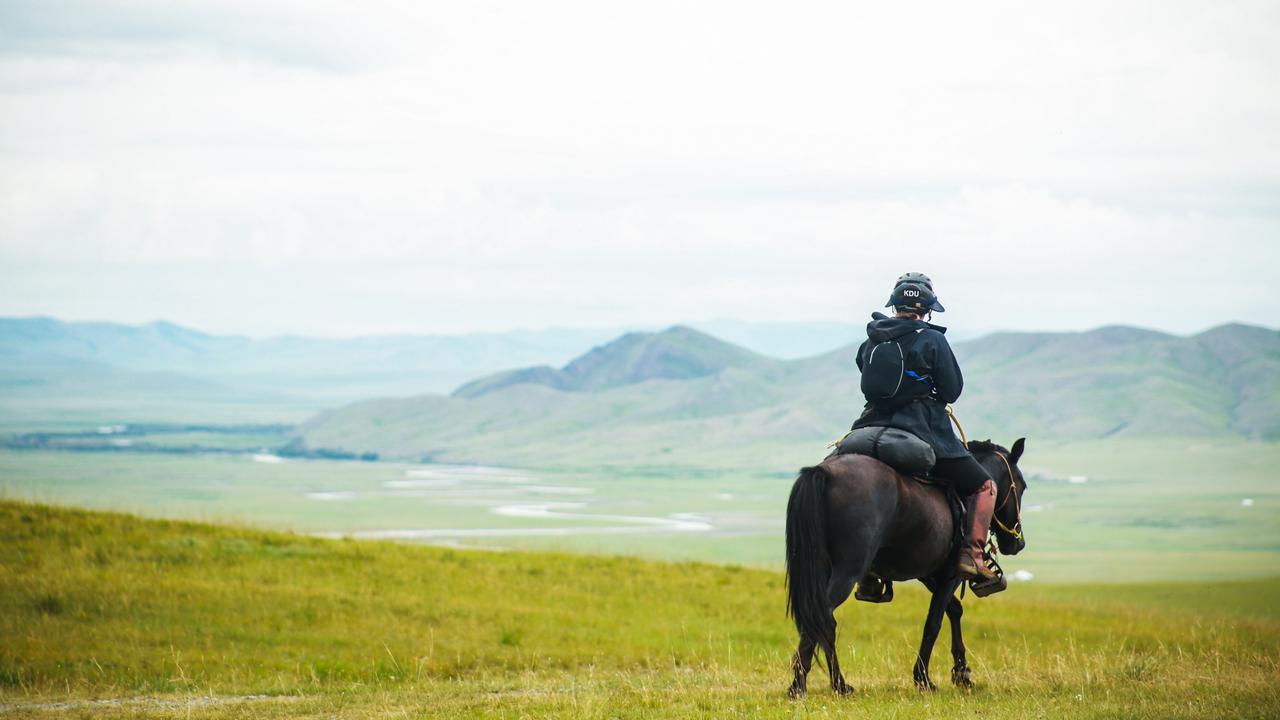
Each day or stage had about 100km of riding with riders given the GPS coordinates of the day’s finishing point and able to choose their own ‘path’ with Dudley admitting to making a few “poor navigational choices” over the race.
This element of the Derby ultimately created some of Dudley’s favourite memories.
“We had riding times from 7am to 7pm,” she said.
“So come 7pm or just before it was up to you to decide if you were going to stay at a horse station and know you were going to get fed and you wouldn’t have to worry about your horse because the herders would look after it. Or if you wanted to say right I still have an hour or two left of ride time I’m going to keep pushing out into the unknown because you don’t know where the next waterhole is or where you can sleep.
“I kept pushing through all the time.
“I camped in goat sheds and with herder families which was pretty crazy.
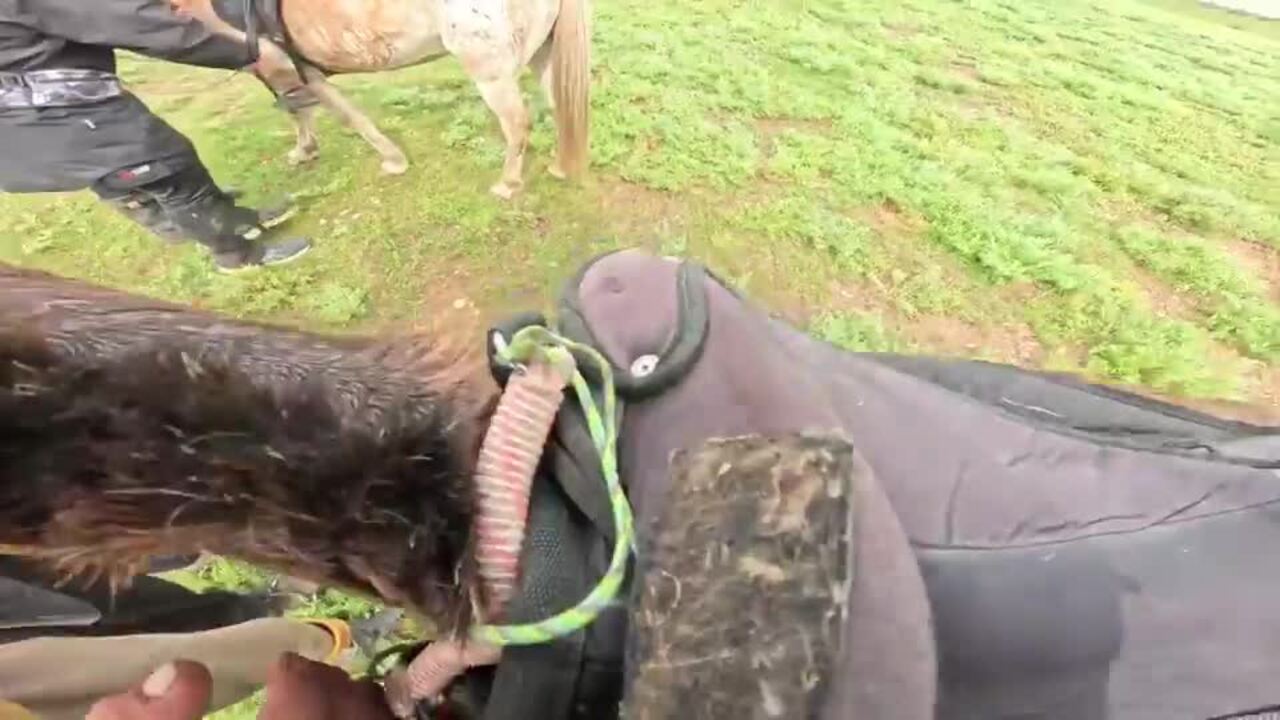
“They (the families) didn’t know what the Mongol Derby was and didn’t speak English.
“So I was trying to sign with them to ask to sleep at their place.
“Mongolian people are very hospitable, it’s their tradition and part of the culture to take people in for the night, feed them and help them continue on their journey.
“It was really funny to try and get past that language but I loved that part of it all being able to experience the culture even though I wasn’t really able to talk to them.
“I showed them photos on my phone of my animals back home, kangaroos and the looks on theirs faces especially the kids they just couldn’t believe.”
With her first and to date only endurance race under belt Dudley is enjoying the opportunity to relax and unwind at least until she weighs up applying for entry in the Gaucho Derby – a 10-day, 500km race in Patagonia.
And the lessons she learned in Mongolia will no doubt help her.
“It goes to show you can keep pushing through and get to the other side of big challenges,” she said.
“I’m not going to lie, going to Mongolia and doing the race, all the unknowns it was so daunting.
“But you sort of just have to jump in, have a go and you will amaze yourself with what you can handle.
“I honestly thought at times it was going to break me but it didn’t.”



